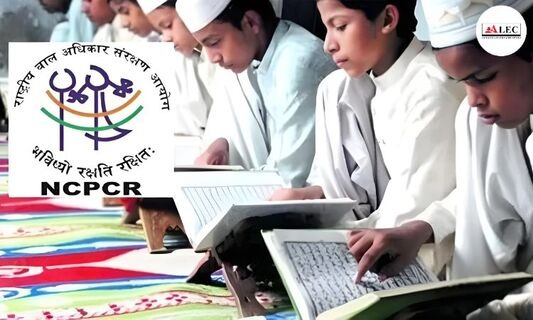- According to Article 30 of the Constitution, minorities have the right to set up and manage their own educational institutions. In a recent ruling, the Supreme Court intervened to halt the National Commission for Protection of Child Rights (NCPCR) from shutting down government-aided madrasas that do not comply with the Right to Education (RTE) Act.
Court's Ruling
- On Monday, a three-judge bench led by Chief Justice D.Y. Chandrachud decided that the NCPCR’s communications, issued on June 7 and June 25, should not be enforced. The court also ordered that similar directions from the central government, as well as those from the Uttar Pradesh and Tripura state governments, should not be followed.
Concerns from Jamiat Ulama-i-Hind
- This decision came after a petition from Jamiat Ulama-i-Hind, which argued that the NCPCR’s recommendations violated the rights of religious minorities under Article 30. The organization claimed that the NCPCR’s actions lacked legal backing and unfairly targeted madrasas. They stressed that the commission's interference undermined the constitutional protections given to these institutions.
Legal Considerations
The Jamiat highlighted that Section 1(5) of the RTE Act specifies that the law does not apply to madrasas or other institutions focused primarily on religious education. This indicates that madrasas should not be compelled to adhere to the RTE Act like regular schools.
Section 1(5) of the RTE Act reads: “Nothing contained in this Act shall apply to Madrasas, Vedic Pathsalas and educational institutions primarily imparting religious instruction.”
Investigative Actions by NCPCR
- In its recommendations, the NCPCR had directed the Uttar Pradesh government to investigate madrasas that admit non-Muslim children, suggesting that these children be enrolled in formal schools instead. The NCPCR also urged the Union Ministry of Education to instruct all states and Union Territories to inspect madrasas and revoke recognition for those not meeting RTE requirements.
Following this guidance, the UP-Chief Secretary instructed district magistrates to comply with the NCPCR’s directives. Similarly, the Tripura government issued corresponding orders in August.
Impact on Madrasas
In Uttar Pradesh alone, there are 16,513 recognized madrasas serving approximately 2.7 million students. Of these, 558 are fully state-funded, while the remainder receives government support.
Conflict with University Regulations
- In a related matter, the Supreme Court noted that some provisions of the UP Board of Madarsa Education Act, which permits the Board to confer degrees, might conflict with the University Grants Commission (UGC) Act. The court will continue hearing this case on Tuesday, following an earlier ruling by the Allahabad High Court that deemed the 2004 Act unconstitutional.
This Supreme Court ruling underscores the need to safeguard the educational rights of minorities and ensure that madrasas can function without unnecessary interference.
You can also read the latest judgement by visiting [Latest Judgment].
For more information, visit [ALEC Enquiry].

